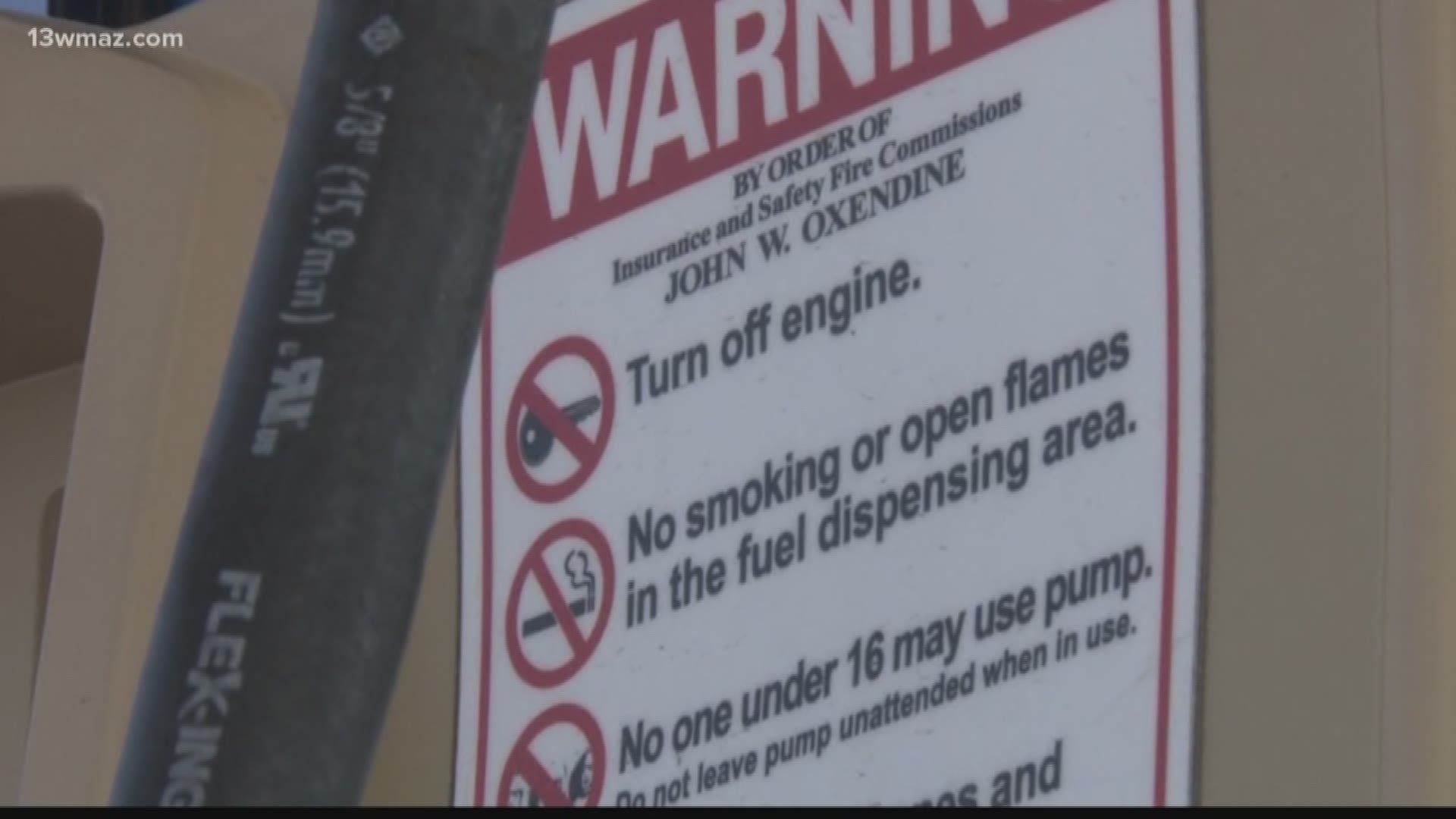Pumping gas is a common thing, but can some of your actions make it dangerous?
A viewer asked us to Verify if static electricity or leaving your car engine on while pumping gas can start a fire.
We went to Macon-Bibb Fire Prevention Director Chief Brenda Thomas for answers.
When you pull into a gas station, there's usually a sign on the pump you can't miss -- "Turn off engine, no smoking, discharge your static electricity."
But what happens if you ignore the warning?
"You have to pay attention to the signage -- it's very important. The reason that they're there is because there's been problems, said Macon-Bibb Fire Prevention Director, Chief Brenda Thomas.
She says when "gas vapors" mix with heat and electricty, flames could erupt.
"All that's dangerous with the engine running and the static electricity, those are very dangerous things that can cause fire or potential for a fire," said Thomas.
Thomas says it's rare, but it's real.
"Although you may not see it around in your neighborhood or where you live, it actually is a fact that these things can cause a fire," Thomas said.
Thomas says when you slide out of your car, you create friction or static electricity that can be transferred from your body to the pump.
"Always run your hand back across the metal side door of your car so you can try to disturb the static electricity," Thomas said.
The Petroleum Equipment Institute reports that static-related fires at the pump appear to be more prevalent during the winter months when it's cold outside.
Thomas says that's also when people are more likely to leave their engines running, but that could spark a fire if the heat from the engine comes in contact with fuel.
"It's very true, it's not a myth, it's fact," said Thomas.
So, yes, we verified that static electricity and leaving your engine on can create the conditions to start a fire, and as Chief Thomas emphasized, it's rare that a fire will start, but make sure you are paying attention to directions on these warning signs.

